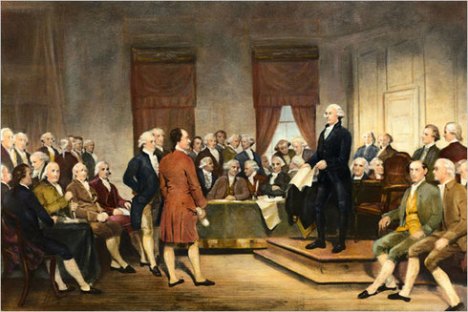Being Human in an Age of Unbelief

by Charles J. Chaput
November 8, 2011
Excerpt:
This leads to my third point. God also is absent from the U.S. Constitution—but not because he’s unwelcome. In effect, God suffused the whole constitutional enterprise. Nearly all the Founders were religious believers, and some were quite devout. Their writings are heavily influenced by biblical language, morality, and thought.
America could afford to be secular in the best sense, precisely because its people were so religious. The Founders saw religious faith as something separate from government but vital to the nation’s survival. In his Farewell Address, Washington famously stressed that “religion and morality are indispensable supports” for political prosperity. He added that “reason and experience both forbid us to expect that national morality can prevail in exclusion of religious principle.” For John Adams, John Jay, James Wilson, Alexander Hamilton, Charles Carroll, George Washington, and most of the other Founders—including Thomas Jefferson and Benjamin Franklin—religion created virtuous citizens. And only virtuous citizens could sustain a country as delicately balanced in its institutions, moral instincts, and laws as the United States.
Here’s my purpose in mentioning this. The American Founders presumed the existence of natural law and natural rights. These rights are inalienable and guaranteed by a Creator; by “nature’s God,” to use the words of the Declaration of Independence. Such ideas may be out of fashion in much of legal theory today. But these same ideas are very much alive in the way we actually reason and behave in our daily lives.
Most of us here tonight believe that we have basic rights that come with the special dignity of being human. These rights are inherent to human nature. They’re part of who we are. Nobody can take them away. But if there is no Creator, and nothing fundamental and unchangeable about human nature, and if “nature’s God” is kicked out of the conversation, then our rights become the product of social convention. And social conventions can change. So can the definition of who is and who isn’t “human.” the rest image
Charles J. Chaput, O.F.M. Cap., Roman Catholic Archbishop of Philadelphia


0 Comments:
Post a Comment
<< Home